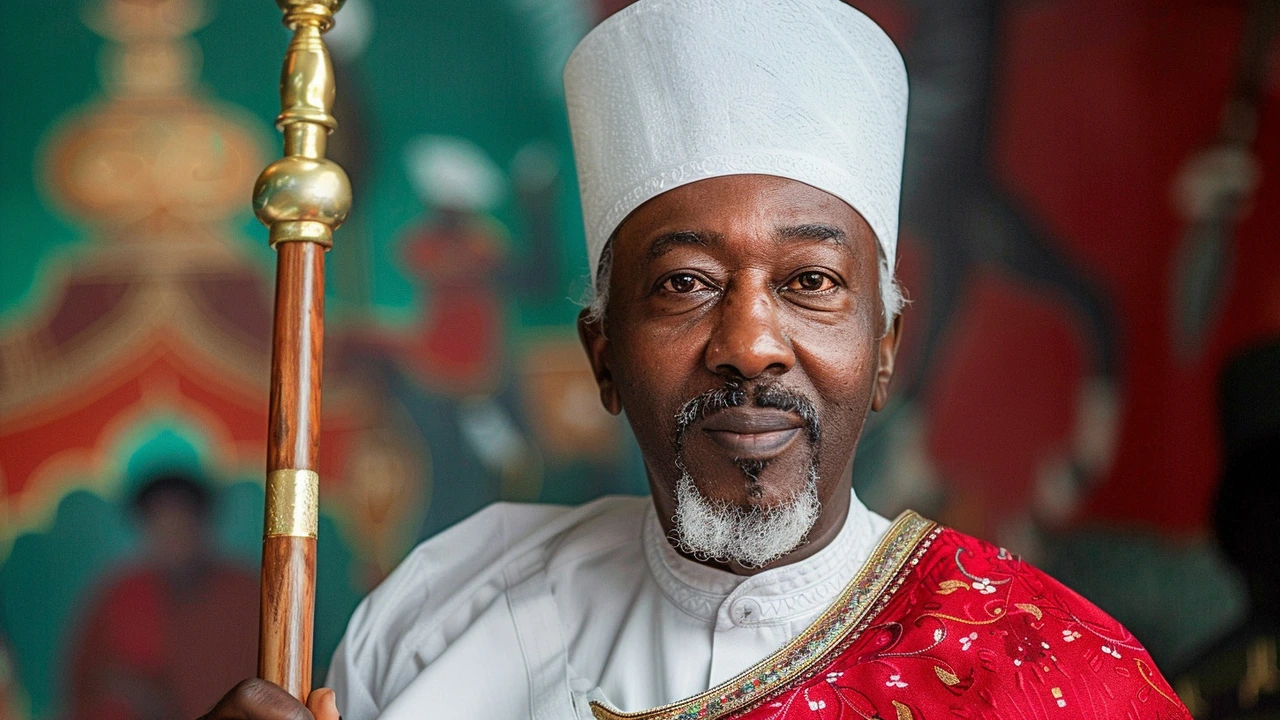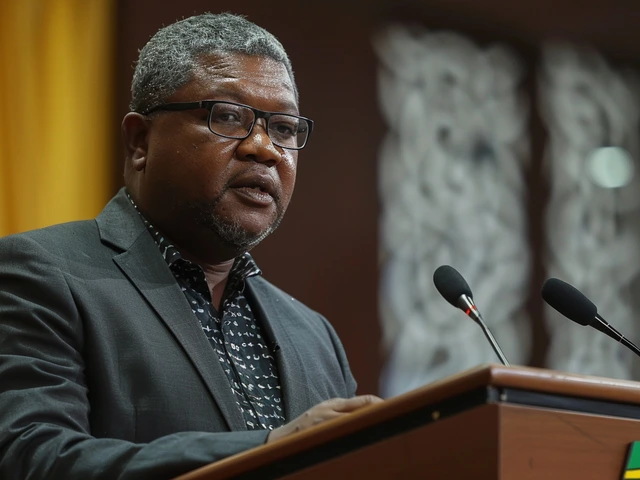Sanusi Lamido Sanusi II's Reinstatement as Emir of Kano Sees Major Political Realignment
The political landscape of Nigeria, particularly within Kano State, has experienced a seismic shift with the recent reinstatement of Sanusi Lamido Sanusi II as the Emir of Kano. This comes after the Kano State House of Assembly's decision to depose the current Emir Aminu Ado Bayero and dismantle the four additional emirates that had been created in 2019. Sanusi Lamido, who was dethroned back in 2020 under contentious circumstances, will once again take the throne, marking a notable turning point in the state's political and traditional frameworks.
The Genesis of New Emirates and the Path to Reinstatement
The saga began in 2019 when the then-Governor Abdullahi Ganduje pushed for the creation of four new emirates – Bichi, Gaya, Rano, and Karaye – in a move that appeared to dilute the authority of the traditional Kano Emirate. This political strategy was widely seen as an attempt to curtail the influence of Sanusi Lamido, who was a vocal critic of Ganduje’s administration. The establishment of these new emirates essentially fragmented the centuries-old Kano Emirate, reducing it from a single powerful entity into a more distributed and arguably less potent assembly of traditional leaders.
However, from the very beginning, the creation of these emirates was met with resistance. Legal battles ensued, and the local legislators frequently debated the legitimacy and necessity of these changes. Central to this controversy was Sanusi Lamido himself, who continued to be a prominent figure despite his dethronement. His proclamations and critique of the political landscape had an enduring influence, making his reinstatement a point of significant public interest.
Political Maneuvers and the Role of the Kano State Assembly
The recent decision by the Kano State House of Assembly can be traced back to a broader desire to reassert traditional power dynamics. By voting to remove Emir Bayero, who was seen as a beneficiary of the political restructuring, and abolishing the four newly created emirates, the Assembly has signaled a strategic pivot back towards centralizing authority within the Kano Emirate Council.
This legislative move is widely interpreted as a deft political maneuver. By consolidating power, the Assembly aims to restore the historical influence long associated with the Emir of Kano. The amendment that led to this vote was contentious, given its potential implications on the governance and political fabric of Kano State and, by extension, Northern Nigeria. Advocates for traditional authority have hailed this as a victory, while others see it as a rollback of modern governance reforms that tried to decentralize and possibly democratize traditional power structures.
The Next Steps and Political Implications
The bill has been forwarded to the governor for approval, which is largely a formality. Upon ratification, the decision will come into full effect, leaving the five emirates of Kano, Bichi, Gaya, Rano, and Karaye without reigning emirs. This development essentially empowers the governor to instruct the traditional kingmakers to select a new emir, albeit with the strong expectation that Sanusi Lamido Sanusi II will be reinstated.
Sanusi’s expected return to Kano on Friday is anticipated with a blend of optimism and apprehension. For many, his reinstatement represents a reversion to historical and traditional governance models, rekindling the enduring authority of the Kano Emirate. For others, this development raises questions about the balance of power, governance, and the political future of Kano State.
Nationwide Reactions and Broader Implications
The reinstatement of Sanusi Lamido as the Emir of Kano is not an isolated event confined to the corridors of Kano State politics. It has instigated nationwide discourse on the role of traditional rulers in modern governance. Several political analysts suggest that this move might embolden other regions with significant traditional hierarchies to push against contemporary political reforms aimed at decentralizing power.
Moreover, Sanusi Lamido's reinstatement is likely to influence political allegiances and the political climate in the upcoming elections. Given his outspoken nature and his historical clashes with the Nigerian political establishment, his return to power could serve as a catalyst for both regional upheavals and broader national political realignments. Institutions and stakeholders far and wide will be keenly observing how Sanusi navigates his reinstated role amid the complex interplay of tradition and modernity.
The Road Ahead for Kano and Sanusi Lamido Sanusi II
As Kano braces for Sanusi's return, the larger narrative will pivot around how he leverages his reinstated position to influence not only Kano State but also the broader political discourse in Nigeria. Sanusi Lamido has long been a figure of significant influence, not just for his role as a traditional leader but also for his contributions as an economist and intellectual.
In the coming months, it will be crucial to observe how his leadership impacts the socio-political landscape of Kano and its interactions with the state government. While his reinstatement marks a return to traditional centralization, the broader tension between historical governance models and contemporary political reforms will remain a central theme in Nigerian politics.
Thus, the reinstatement signifies more than just a change in leadership for Kano; it potentially marks a shift in how traditional and modern governance coexist, setting a precedent that could resonate across Nigeria's diverse and often complex political environment.







Naveen Kumar Lokanatha
May 23, 2024 AT 20:07 PMSanusi's return to the Kano throne marks a clear shift in the power balance between traditional authority and modern politics. It also signals that the state assembly is willing to reverse previous decisions that fragmented the emirate. The move could restore a more centralized traditional structure that many in Kano have long supported. At the same time it raises questions about the independence of the legislative body from the governor's influence. Observers will watch closely how Sanusi navigates his new role in a volatile political environment
Alastair Moreton
May 29, 2024 AT 15:00 PMSounds like a classic power grab to me.
Surya Shrestha
June 4, 2024 AT 09:53 AMThe reinstatement of Sanusi Lamido Sanusi II, a figure of considerable erudition and economic acumen, constitutes not merely a regional adjustment but a paradigmatic reconfiguration of the Nigerian politico‑institutional tapestry; it resurrects a lineage whose historical gravitas has been, until recently, subject to ostensible diminution. One must consider, in a dialectical fashion, the antecedent policies instituted under Governor Ganduje, whose stratagem to proliferate nascent emirates ostensibly sought to dilute the pre‑eminence of the Kano throne. This maneuver, whilst superficially emblematic of decentralization, arguably functioned as a conduit for consolidating executive influence over traditional custodianship. The legislative reversal, effected by the Kano State House of Assembly, therefore emerges as a counter‑weight, an embodiment of institutional self‑correction, albeit one that may be construed as a reactionary conservatism. In the intricate nexus of traditional authority and contemporary governance, the re‑centralization of power under Sanusi is poised to engender a recalibration of political allegiances. This is particularly salient among the electorate whose identities are inextricably linked to the venerable emirate. Furthermore, the dissolution of the four adjunct emirates-Bichi, Gaya, Rano, and Karaye-erodes the structural scaffolding that had, in recent years, enabled a more pluralistic representation of sub‑regional interests. Such dissolution may precipitate grievances that could manifest in sociopolitical unrest, a scenario that policymakers must anticipate. Nonetheless, the prospective synergy between Sanusi’s reformist proclivities-manifest in his prior critiques of fiscal mismanagement-and the entrenched expectations of the Kano aristocracy could engender a hybrid governance model. This model would reconcile modernist economic imperatives with the custodial responsibilities of traditional leadership. Analysts must also attend to the broader ramifications for the Nigerian federation, wherein similar traditional institutions may interpret Kano’s precedent as an imprimatur for reasserting their own historic prerogatives. The upcoming legislative assent by Governor Ganduje, while ostensibly procedural, will undeniably serve as a litmus test for executive acquiescence to traditional authority. Observers will scrutinize whether the governor’s endorsement signifies genuine support or a calculated concession. Moreover, the media narrative surrounding Sanusi’s return will shape public perception, potentially amplifying either optimism or skepticism. In sum, the recalibration of the Kano Emirate under Sanusi’s aegis signifies a momentous inflection point. It beckons scholars and policymakers alike to reexamine the mutable dynamics of authority within Nigeria’s multifaceted polity.
Rahul kumar
June 10, 2024 AT 04:47 AMSanusi's background in economics could actually help Kano attract investment now that he's back. The new administration should leverage his experience to push for infrastructure projects that benefiet the local community. It's also a chance to address the debt issues that have plagued the state for years. If the kingmakers work closely with him the region could see real change. The key is to keep the focus on development not just politics
mary oconnell
June 15, 2024 AT 23:40 PMThe epistemic ramifications of reinstating a thirteenth‑century institutional archetype in a twenty‑first‑century polity are, frankly, as inevitable as a Lagos traffic jam; one can almost hear the bureaucratic sighs echo through the corridors of power. By invoking the lexicon of traditional legitimacy, the state apparatus engages in what I would call a performative retro‑modernity, deploying heritage as a strategic lever. Of course, the populace will relish this nostalgic gesture, given that their daily challenges are best solved by symbolic throne‑occupancy. In the grand tapestry of governance, the silk thread of nostalgia is often woven precisely because the cotton of reform has frayed beyond repair.
Michael Laffitte
June 21, 2024 AT 18:33 PMYou're absolutely right, the drama of this whole saga feels like a Shakespearean play set on the savanna. While the symbolism is potent, we still need concrete policies that address education, health, and jobs. If Sanusi can channel his charisma into real reforms, the theatrics might finally have a purpose. Otherwise, it's just another curtain call for the elite.
sahil jain
June 27, 2024 AT 13:27 PMFinally some real news! Can't wait to see how this reshapes Kano's future 🙂
Bruce Moncrieff
July 3, 2024 AT 08:20 AMSanusi’s comeback could be the spark that ignites a new era of growth for the region its like a breath of fresh air that the youth have been craving we just need to stay tuned and support any positive initiatives he rolls out